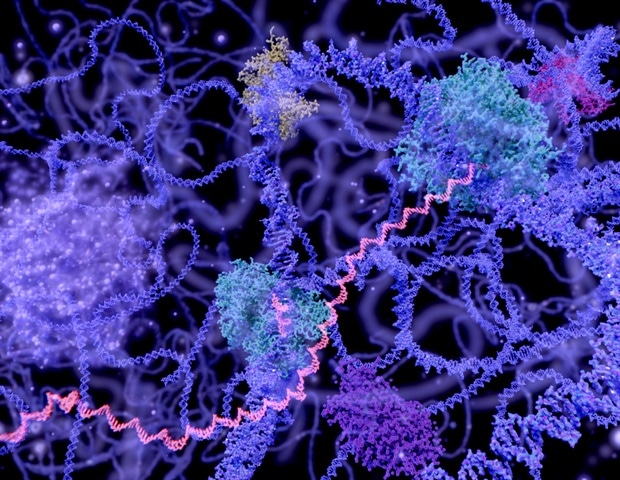A brand new research on canine discovered that chromatin’s spatial construction has a major position within the evolution of social habits. Chromatin, the compact type of DNA, not solely packages genetic materials but additionally performs a vital position in gene regulation. This research demonstrates that each the linear sequence of DNA and its three-dimensional configuration are linked to pleasant habits formed by canine domestication, offering new insights into the molecular mechanisms underlying social traits.
Behavioral traits corresponding to sociability are influenced by quite a few genes, their interactions, environmental elements, and particular person life experiences.
As a result of the impact of a single gene is troublesome to detect, it made headlines when in 2017, Dr. Bridgett vonHoldt, a professor at Princeton College, and her crew recognized particular components within the GTF2I gene in canine, linked to Williams-Beuren syndrome (WB) in people, characterised by hypersociability, excessive friendliness, and craniofacial abnormalities. The findings urged that the choice for elevated friendliness in canine concerned modifications within the GTF2I gene.
“This gene performs a job in neural growth and pathways associated to anxiousness and sociability and is probably going a key determinant of the pleasant habits formed by domestication. In our present research, we aimed to analyze how genetic variants affect the 3D construction of the DNA containing this gene,” says vonHoldt, lead creator of the publication in BMC Genomics. “The GTF2I gene has a number of variants, with the traditional, wolf-like variant present in three out of ten people. We have been interested in how the traditional and extra fashionable variants exactly have an effect on gene perform.” The gene variants originate from retrotransposons, that are cellular, self-multiplying DNA components.
The researchers examined an intronic part of the gene, which doesn’t produce a gene product however doubtless influences chromatin-;the complicated of DNA and proteins that make up chromosomes-;spatial construction and causes variations in gene expression.
They relied on mind tissue samples from canine supplied by the ELTE College’s Canine Mind and Tissue Financial institution in Budapest.
“Brainstem samples have been collected from pet canine euthanized for medical causes and donated for analysis. We included solely canine with out main nervous system sicknesses,” explains Dr. Eniko Kubinyi, head of the Division of Ethology at ELTE, who established the financial institution with geneticist Dr. Sára Sándor and veterinarian Dr. Kálmán Czeibert andmaintains it with grants from the Hungarian Academy of Sciences. “The examined gene regulates the expression of different genes, so its expression is predicted all through the mind.”
The research discovered that the traditional and fashionable variants of GTF2I have an effect on the chromatin loop form otherwise.
“Novel regulatory DNA segments brought on by retrotransposon insertions are usually eradicated from the genome. Apparently, inside an intron of the GTF2I gene, the traditional wolf genome largely co-opts the inserted phase, whereas the fashionable canine genome rejects it. The presence or absence of this retrotransposon is related to altered 3D chromatin construction at GTF2I, with doable downstream impacts on pathways regulating the extra-cellular matrix and GTF2I splicing. That is just like the people’ case, the place many WB sufferers have cranio-facial abnormalities defined by extra-cellular matrix anomalies and altered GTF2I perform. Basically, we report putative molecular convergence between hyper-social behaviour in canine and human Williams-Beuren syndrome,” emphasizes Dr. Dhriti Tandon, the primary creator of the research.
When sure species protect the identical mutation whereas others do not-;as seen within the distinction between wolves and dogs-;the regulatory impact is probably going evolutionarily important. Within the absence of retrotransposons, a DNA loop current in wolves doesn’t type in canine, which can clarify among the variations in neurocognitive profiles and therefore social behaviors between the 2 species.
The researchers hope that their outcomes will spotlight that not solely the genomic base sequence, but additionally its 3D construction, influences habits.
Supply:
Journal reference:
Tandon, D., et al. (2024). Canine hyper-sociability structural variants related to altered three-dimensional chromatin state. BMC Genomics. doi.org/10.1186/s12864-024-10614-6.

0 Comments